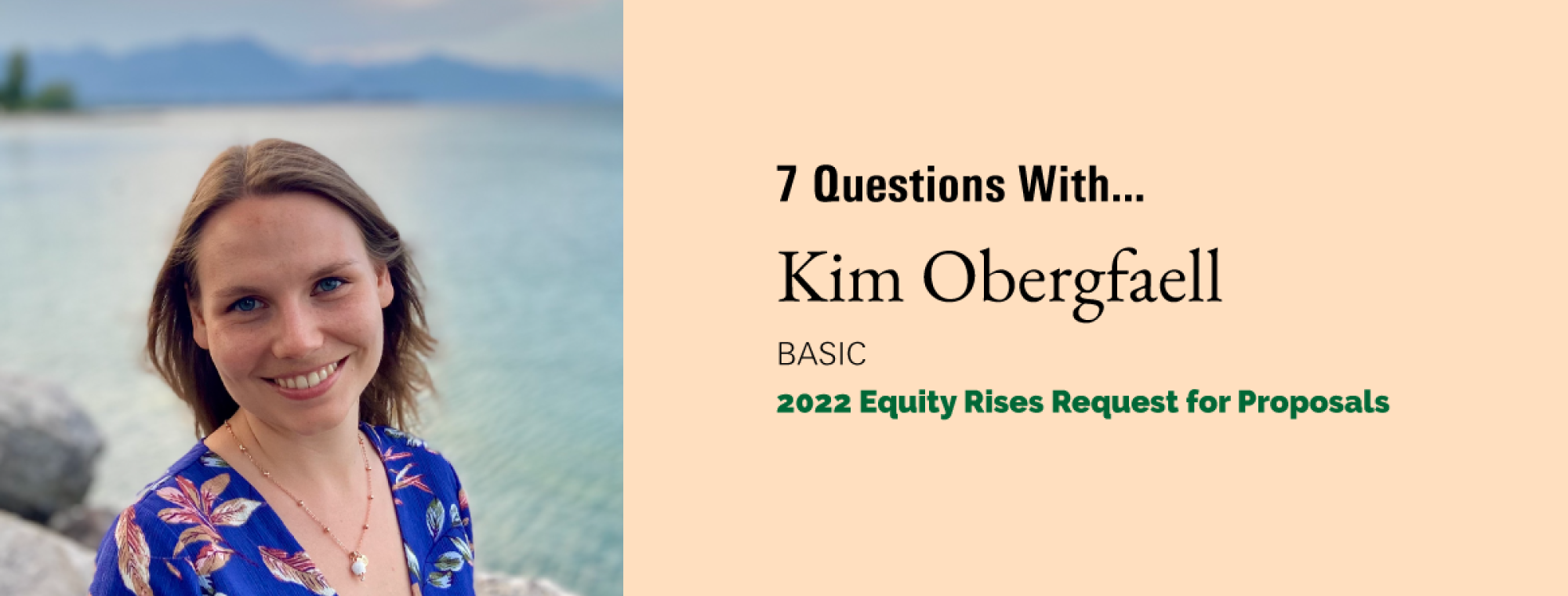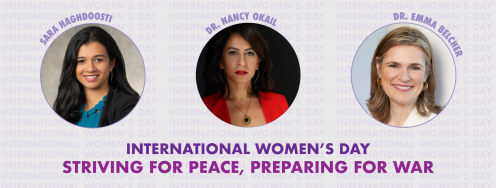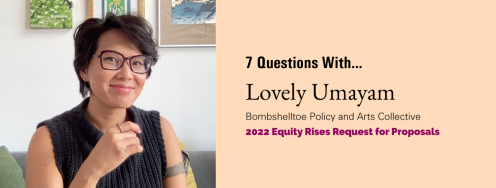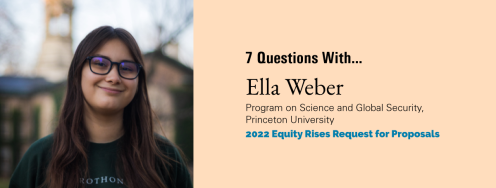Kim Obergfaell is a Policy Fellow in the Inclusive International Security Program at BASIC. She has a background in nuclear non-proliferation and risk reduction and has spent the past years researching nuclear policy and organizing dialogues in different roles across governmental and non-governmental organizations. This is part of a series of interviews in which you can get to know the grants given under the 2022 Equity Rises Request for Proposals and the people behind all the work.
Question 1: Tell us about your work! What kind of goals do you have? What are you excited about?
At BASIC, we are currently launching a new policy cycle of the Emerging Voices Network (EVN) dedicated to challenging identity, power, and inclusivity in the nuclear policy field. This involves examining key issues at the intersection of nuclear weapons and climate change, social justice, race, the military-industrial complex, and equity, diversity, and inclusivity within the field. The goal is to change some of the more traditional conversations we have on disarmament, non-proliferation, and diplomacy. Thanks to Ploughshares, we are hoping to provide a forum for early career researchers and thinkers to consider issues that are often put aside but that nevertheless are connected to individuals’ and states’ experiences and perspectives on nuclear policy. For the nuclear community to make progress in the future – whether it be on disarmament, arms control, or risk reduction – we need experts and negotiators that understand the interconnected and underlying challenges as well as the historical influences that shape states’ perspectives. Having spent the past two months planning this cycle and its various activities, I am very excited to launch this project in January and really look forward to learning more and expanding my own horizon.
Question 2: How do you think including more diverse voices will affect the nuclear policy field?
The nuclear field has historically been considered from only a certain set of perspectives. Only by involving diverse voices and ensuring that these are heard can we make progress on generating a diverse set of ideas and proposals of how best to manage the multitude of challenges nuclear policymakers are facing today. This includes thinking outside the box that nuclear policy has traditionally been placed in and considering linked and underlying threats and challenges that will affect policymaking in the future.
Through the EVN, we are hoping to build a truly global and inclusive cohort of early career thinkers that can do just that: By bringing together young and early career voices from all over the world and with diverse backgrounds in science, technology, and academia, we work towards confronting, reflecting, and addressing key topics to transform contemporary and future nuclear policy decisions in the best interests of peace and security.
Question 3: How do you measure progress?
This may sound corny, but for me it is the spark in someone’s eyes when they have just listened to a new perspective or concept, and you can almost see the resulting influx of new ideas that they are now considering. It is moments like these when people learn something they did not understand before that can change their mindset or the way they approach a certain issue. In practice, this means connecting people that may otherwise not have an opportunity to speak to each other and enabling dialogue between communities where none was before.
Most of the time, substantive and tangible progress towards nuclear disarmament and non-proliferation only become apparent years later and that can be frustrating and challenging to work towards. But we can pave the way by expanding horizons and bringing in more diverse voices that will act as a catalyst for new initiatives and approaches to nuclear policy. The resulting discussions, policy recommendations, and future cooperative projects are all signs of progress. But as I see it, they always start with that one spark – and we need more of those!
Question 4: What’s the one thing about the nuclear policy field you wish people knew or would talk about more often?
How inaccessible nuclear policy seems to the public. With the current Russia-Ukraine conflict, nuclear weapons have been more present in the news and in public discussions. But as people are faced with images of war and destruction, we cannot throw around terms like ‘increasing nuclear risk’ and then be alarmed when ‘World War III’ is trending on twitter. For me, this has underlined a deeper need to inform public discussions about nuclear weapons. This does not require expert-level knowledge or a thorough understanding of deterrence theory but, as a community, we should engage more with the general public to establish a basic understanding of nuclear policy and its implications. Fear should not be the motivator for change.
Question 5: What's the most interesting or memorable project you've gotten involved with in your career?
There have been many interesting projects over the past few years. In my previous role, one of the non-nuclear dialogues I was involved in was looking at how we think about futures, and how our biases and current approaches affect our ability to think outside the box. This was a really interesting thought experiment that caused me to think differently about how we can effect change.
Question 6: What advice would you give to someone who is trying to enter the nuclear policy field?
I would tell them, don’t be intimidated by too many terms or acronyms and don’t be afraid to ask questions: It is the (mislabelled!) ‘stupid’ questions that often turn out to be the smartest. Just because no one else in the room has asked about this, does not mean it is not worth bringing up! So, ask those questions, approach whoever you want to speak to, and build yourself a network of individuals you actually enjoy talking to – regardless of whether you agree with their point or not.
Question 7: What’s the best book you’ve read recently?
Not very recently, but “The Confidence Code” by Katty Kay and Claire Shipman. It is a non-fiction book about the nature of confidence, why women often lack it, and how this impacts our leadership, success, and fulfilment. It includes some scientific research and interesting interviews with (women) leaders from various fields who share their stories. It was one of the first books I read that motivated me to become more confident in bringing forward my own perspective as a young woman in a field still dominated by men.
Seven Questions with Kim Obergfaell @KimObergfaell




